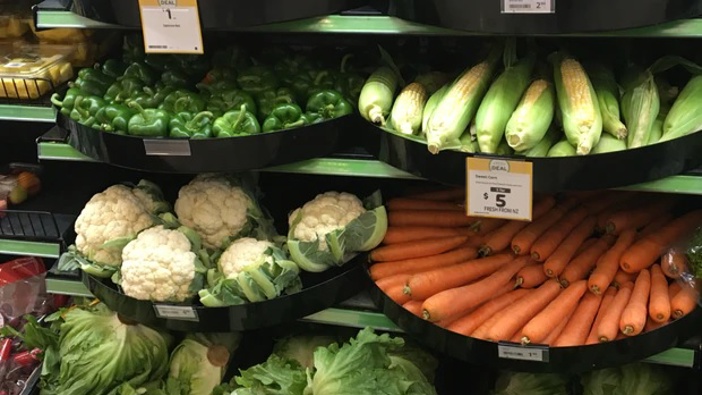Follow
the podcast on

It's one of the only places we're allowed to visit during this time of isolation – but are we inadvertently putting ourselves at risk after a trip to the supermarket?
With evidence proving the coronavirus can live on surfaces and be transmitted to others, Dr Jeffrey VanWingen, a physician with Family Medicine Specialists in the US, has shared his tips for safe grocery shopping.
"We have a dilemma in society, that we need to eat to live, but we also need to get that food, and that getting of food is now risky," he said in a 13-minute video shared to his YouTube.
"When you're out at the store, it's not just about wiping down the shopping cart handle with an antiseptic wipe. We need to be better than that when we go to the supermarket."
Referring to a study by the National Institutes of Health which determined the coronavirus disease can live for several hours to days in aerosols and on surfaces, VanWingen explained he recommends people adopt the "sterile technique" – a medical method used to perform surgeries – that he has adapted for use when buying food during the coronavirus pandemic.
His top tips include minimising the time spent inside by planning ahead and ensuring you only touch the items you'll be taking home.
"Get what you need and get out, don't loiter," he advises. "Don't read the labels, don't pick something up — commit to buy."
He then suggests leaving purchases outside our homes for three days, storing them in a garage or on your front porch. However, if you "absolutely must" bring them inside, he has created a special technique to unpack them without spreading germs.
"Imagine that the groceries have some glitter on them, on the packaging and the bags," VanWingen said. "Our goal is to not have any glitter at the end of this process in our house, on our hands, or more importantly on our face."
Once inside, he suggests dividing your kitchen bench or table into two halves and sanitising the entire area. However, one side will be the "dirty" side where you place your groceries from outside while the other half is "clean". Nothing can move from the dirty side to the clean until it has been sanitised.
For boxes such as cereal, he recommends bringing the plastic bag on the inside out, and ditching the cardboard, while cans and bottles you can clean over with disinfectant before moving over.
There are more complex items such as vegetables in bags or ones you've bought fresh – of which he suggests "dumping" items into previously cleaned storage items so you can ditch the contaminated bags.
"You want to wipe off the areas that you think human hands were touching, more liberally than areas that you don't think human hands have touched," VanWingen said. "That's all common-sense stuff."
But Sydney-based virologist Timothy Newsome has explained that while "every surface is a hazard" – even vegetables – extreme measures aren't necessary.
"You cannot get risk down to zero, but if you look at how people have got infected, they're not being infected through those kind of supply chains," he told news.com.au.
"The actual transmission events that we have described are sustained in close contact between people. We didn't see the kinds of reduction in some of the countries that have been a bit more successful in managing the outbreaks if it was that level of contagious."
He also said supermarkets had added measures to help prevent the spread of the virus, such as cashiers wearing gloves and sanitising equipment, all of which makes him confident visiting the supermarket is a "low-risk environment".
"It should be recognised the virus can survive on many surfaces quite stably, sometimes for a number of days. But really, the only surface it really doesn't like is copper, which is not very useful in our day-to-day life."
Instead Newsome, who is an associate professor at the University of Sydney, has much simpler advice for shoppers doing their groceries.
"The best course of action is to wash your fruit and vegetables with soap as soon as you bring them home," he said. "Wash them with warm soapy water, just as you do your hands."
He also added that cooking foods on a high heat would also kill the virus.
Take your Radio, Podcasts and Music with you









